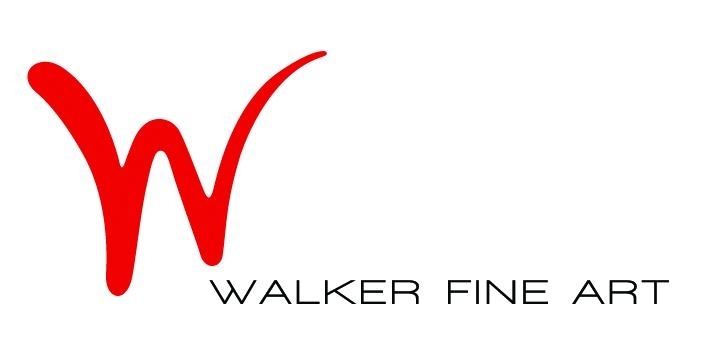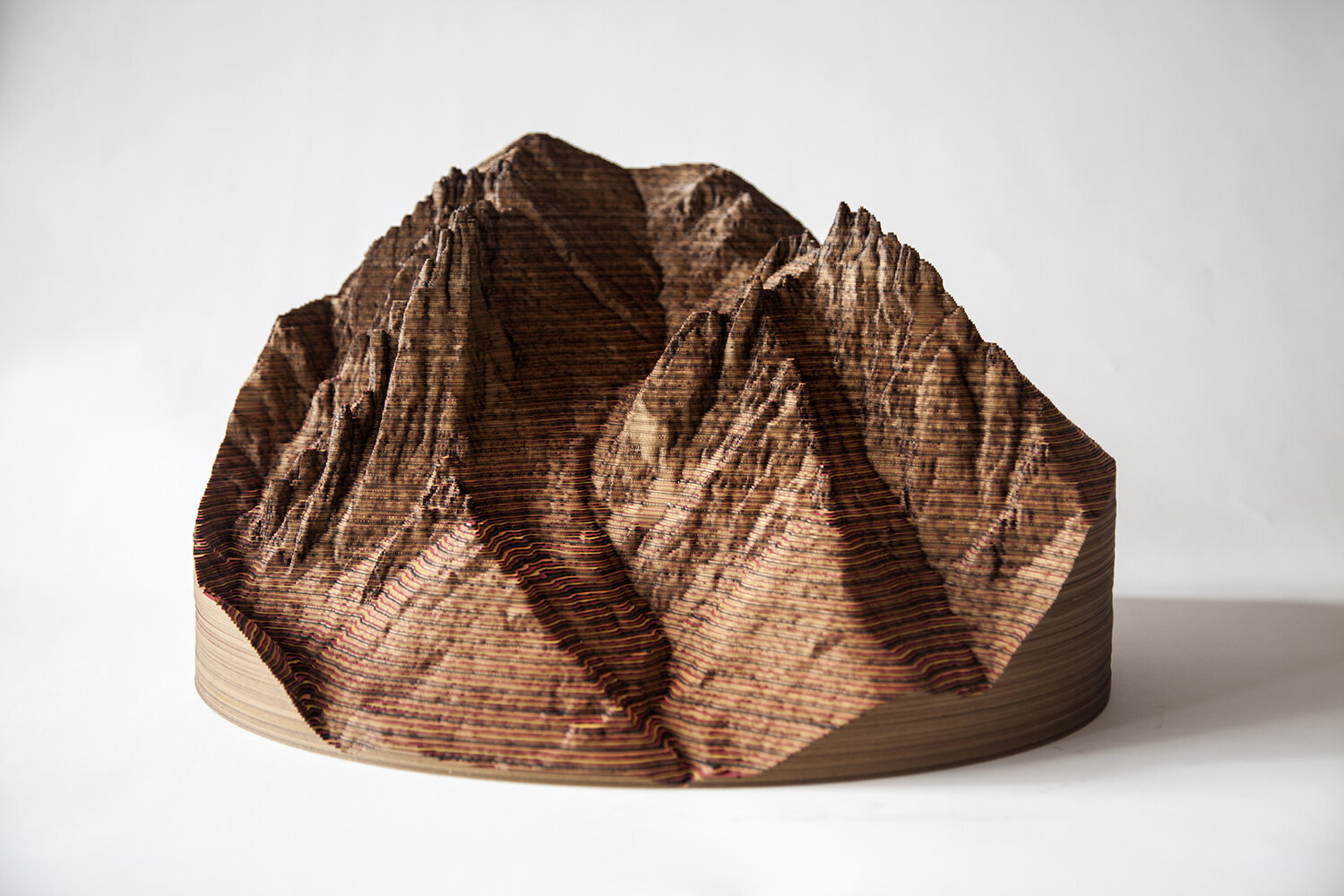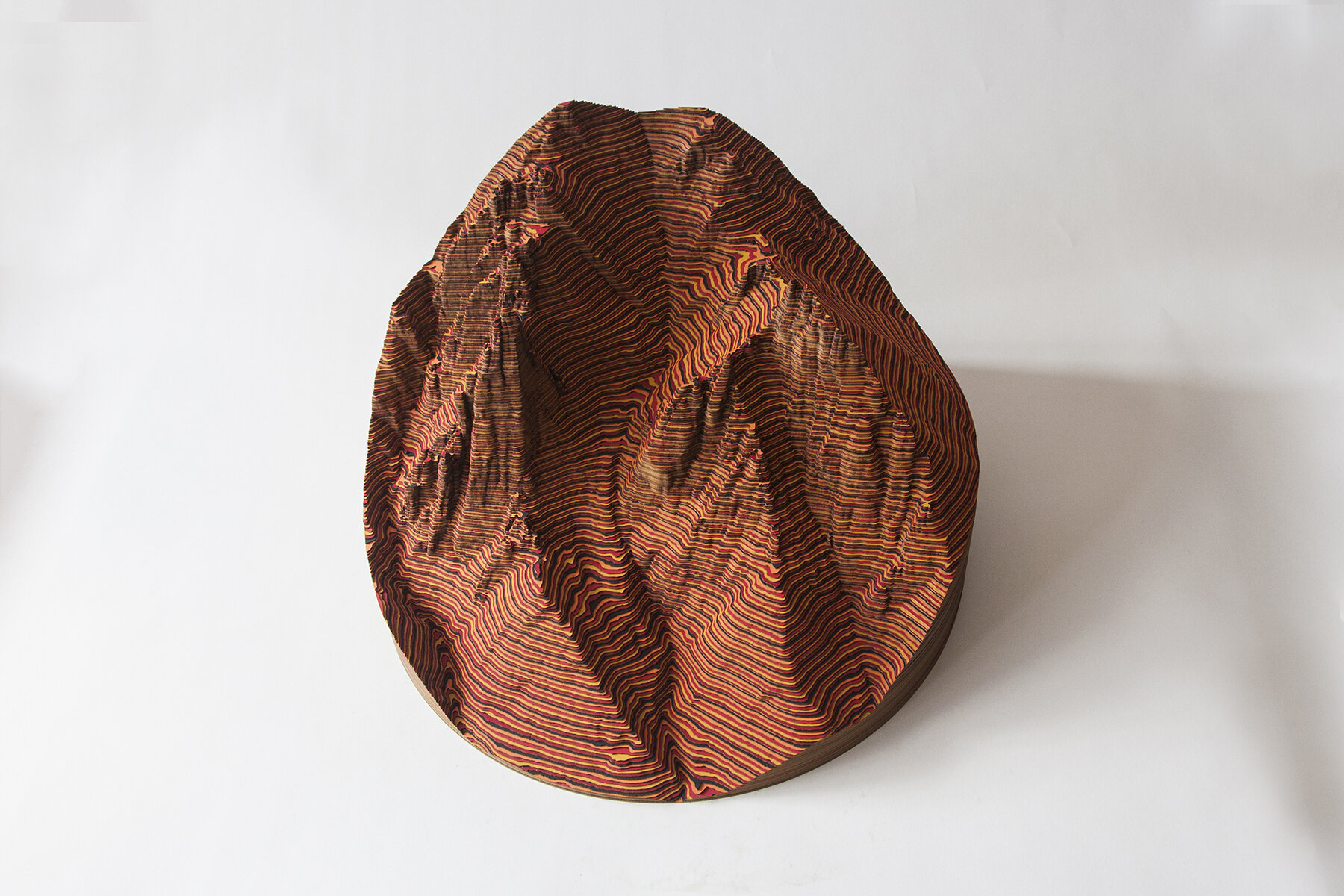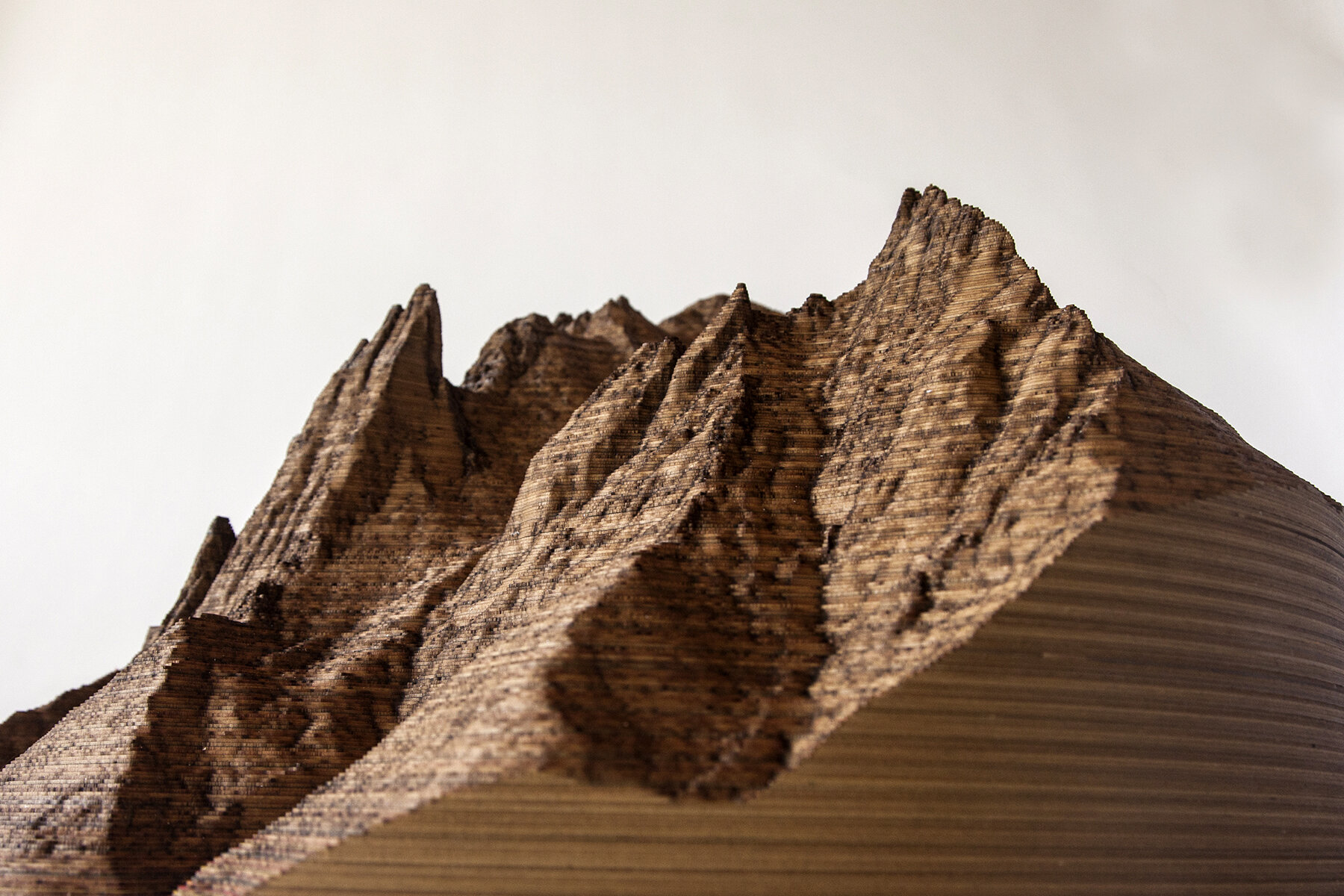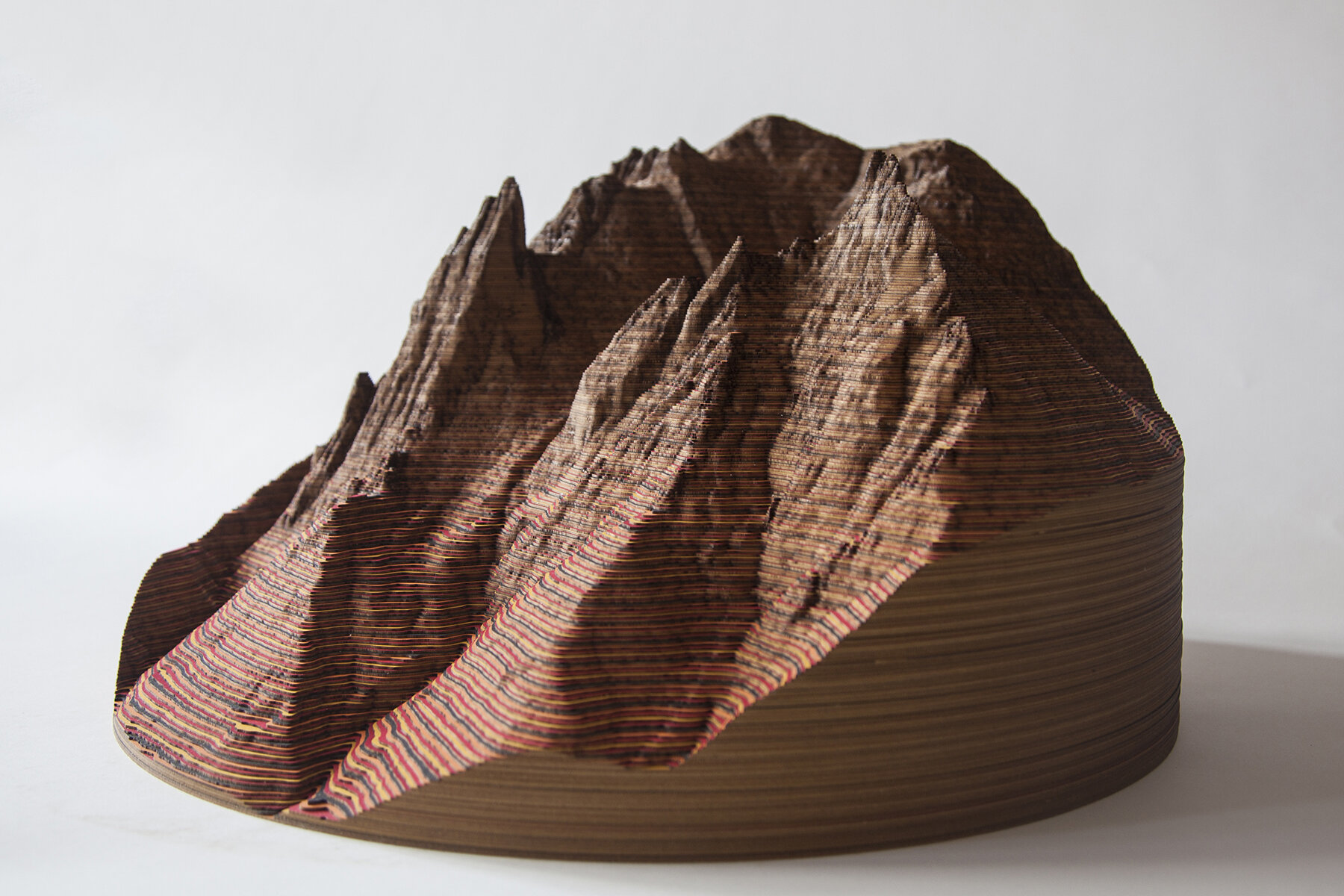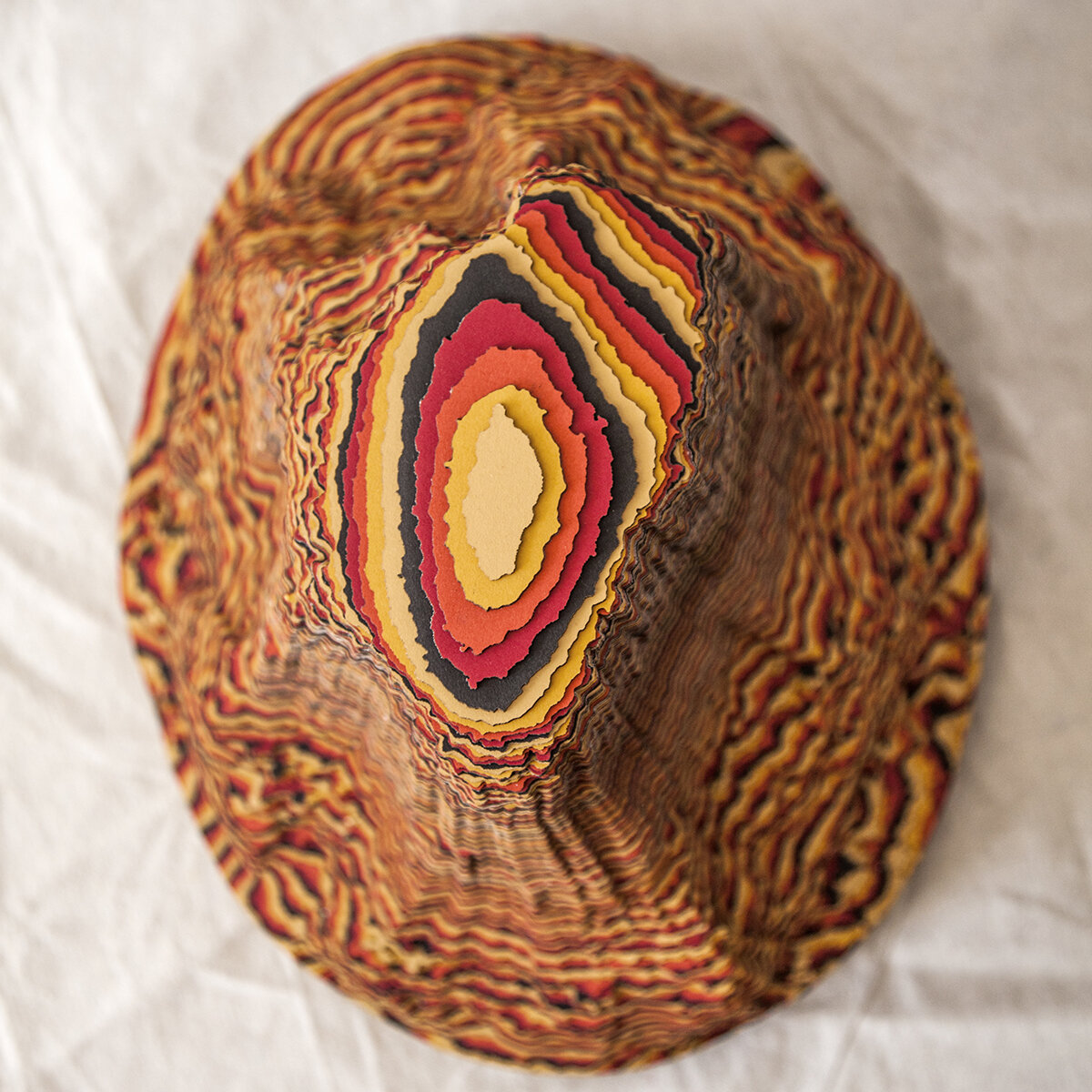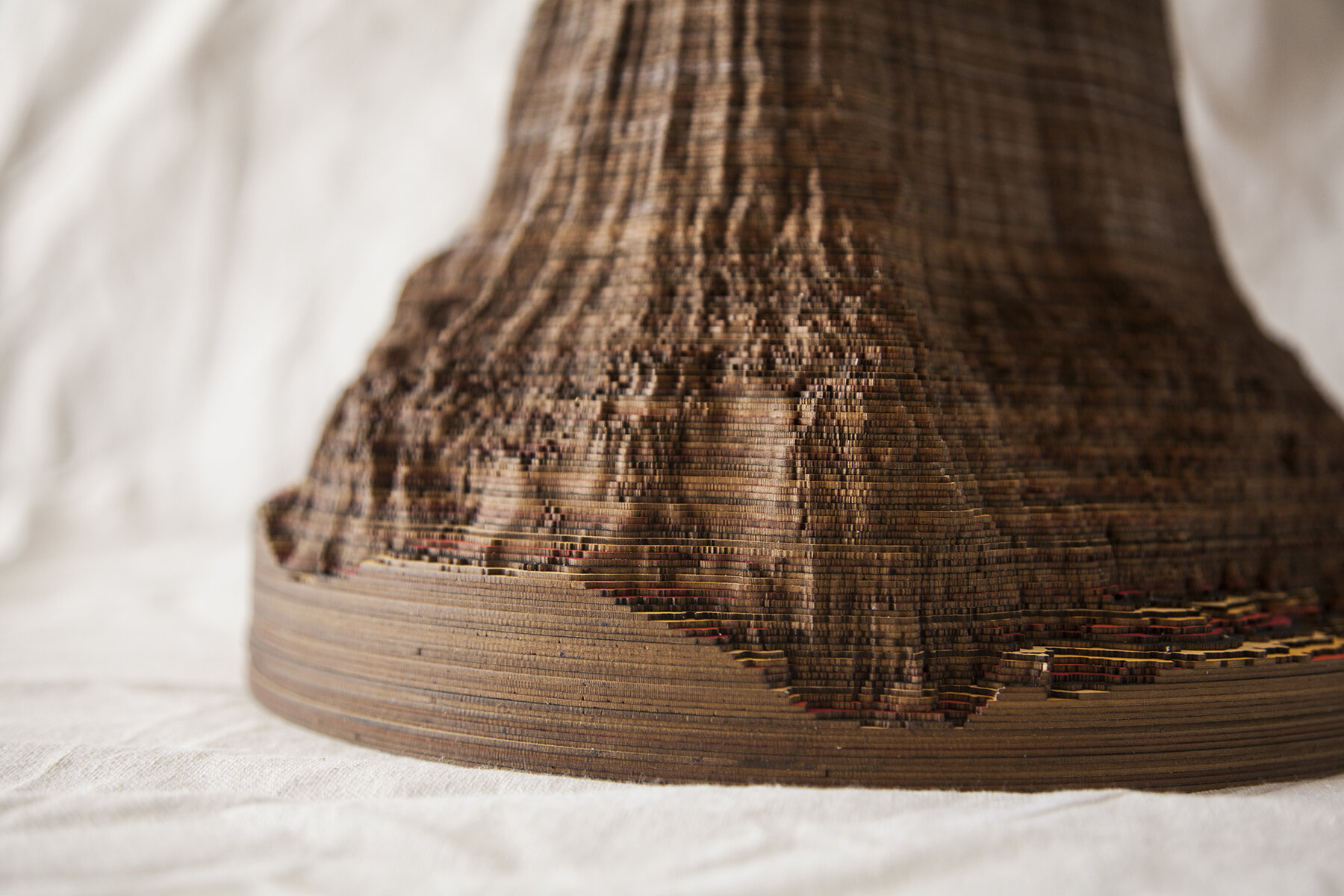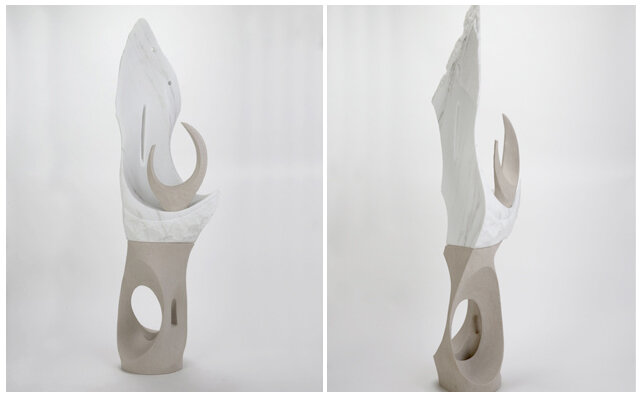L A N D L I N E S
On View September 25-November 7, 2020
The world’s most beautiful places are rarely flat, and the same notion can be applied to artwork. Using the land’s profundity as inspiration, these six artists expand on the ancient art of mapmaking, bringing forth their unique artistic and emotional representations evoked by the geography and movements of the natural world. Through painting, etching, drawing & three-dimensional installation, the artists of LAND LINES provide a contemporary spin on traditional cartography.
This group exhibition features the work of Christopher Warren, George Kozmon, Ben Strawn, Christopher Hassig, Ellen Moershel, and Heather Patterson.
Press Release (pdf)
Price List (pdf)
Christopher Warren
Through Christopher Warren’s series of edited landscapes, he explores how human history interacts with the landforms it has been imposed onto. This history includes nuclear fracking, resource extraction, and geometric land allotments. We attempt to impose Euclidean geometry onto the fractal geometry of nature; Warren’s art physically imposes these contradicting geometric languages onto each other to explore the events of Colorado’s past.
Artist Statement (pdf)
Resume (pdf)
“The piece titled The Nipple depicts the feature called “The Nipple” in North West Colorado, with the arbitrary Euclidean shapes that land allotments, extraction leases, and property rights use in an attempt to classify the fractal geometry of nature. “
“The 14,000 foot peaks found in Colorado have significant attention paid to them, with the term “peak bagging” often applied to those who aim to summit as many mountains as they can. All of Colorado’s 14ers have been isolated by their lowest encompassing contour line, and arranged in their general orientation across the state. These mammoth geologic features have been detached from their surroundings and presented in a consumable form, all for the fact that they are taller than the arbitrary 14,000 foot mark.”
“The human history of the American west is invariably shaped by the land, and through my series of altered landscapes, I attempt to explore how human activities and concepts are imposed on the land. The piece titled Plowshare shows the topography above the Rio Blanco nuclear test site, with radiating bands of alteration centered on the epicenter of three nuclear blasts that occurred underground in Colorado on May 17th, 1973. “
George Kozmon
George Kozmons fascination with topography grew out of his formative years in the dramatic landscape of Switzerland, and has continued to evolve throughout his life through immersive research, hiking & climbing trips. Kozmon is interested in how we perceive, how scale changes that perception, how images and objects can be understood in various ways, and how a sense of place can be expressed. To portray this, he manipulates and layers topographical/geographical maps to underscore perceiving a thing in different forms of depiction.
Artist Statement (pdf)
Resume (pdf)
“My newest works, The Emerald Series, seeks to contradict that distance by deeply experiencing the local parks of my surroundings. These are parks in which I’ve spent a tremendous amount of time, hiking, biking, kayaking, climbing, and general adventuring.”
“Landscapes affect us physically, chemically, and psychologically; they resonate with genetically encoded instincts of which we are not conscious. Most of us in the developed world have transferred direct immersion in the power of landscape into abstract environmental concerns and digital experience. We have distanced ourselves.”
“This moment of time we’re experiencing also brings our focus closer to home; it’s allowed me to examine and appreciate my immediate environment more deeply. “
Ben Strawn
Born into a family of artists, Ben Strawn grew up on conversations concerning color, line and form. Maps, as objects in themselves, have intrinsic beauty: abstract composition of line, form, material & shape. We map in order to try and understand our place in reality – be it physical, psychological, emotional or spiritual. Drawing inspiration from the forms of the earth and the beauty of color, Strawn works with frequencies, form, color and balance to create abstract magic that expresses the essence of life itself: living.
Artist Statement (pdf)
Resume (pdf)
“In the beginning there was the dot- the 'you are here'. Then came the line- the indication of direction, distance and time. The line circled around and joined itself to become a shape, a perimeter, a within and without, an expression of ownership, self and other. identity-to identify with-definition of self.”
“We map in order to try and understand our place in 'reality' be it physical, psychological, emotional, spiritual.”
“It is interesting that in order to gain perspective we rise above and look down at our worlds; in the process we lose perspective in the renaissance sense. i.e. 'Renaissance perspective' The world flattens onto the picture plane. Shape flattens into modern art. “
Christopher Hassig
Christopher Hassig’s creations are not maps of measurement and observation, but maps of imagination. For the purposes of his most recent series, accumulated investigation into the ever-evolving ways of representing the world & our surroundings are all part of the research towards a richer imagination. The gap between what’s visible on the page and the inferred territory is where maps catch fire in Hassig’s imagination. Translating that vision as best he can, or better yet, giving us the tools to construct our own imagination based on the available information, is a lifetime project.
Artist Statement (pdf)
Resume (pdf)
“Maps are more than mere imagery. They are an incredibly efficient system for conveying visual and narrative information in a non-linear manner. They do not have to follow one storyline, series of events or perspective, but can contain multitudes. Maps often strive to appear official, impartial, unemotional, and impersonal, but at the same time maps do have authors. As much as mapmakers may attempt to transcend human fallibility, maps reflect the biases, the tools and technology, and the worldview of their creators. They can be deliberately skewed to tell a story, but will tell one about their creator regardless.”
“We should discuss imagination, for these are not maps of measurement and observation, but maps of imagination. These maps exaggerate the bias of their creator, because they spring entirely from my imagination. At the same time they are recognizable, familiar almost. This is because they lean heavily on a lifetime of enthusiasm for mapmaking, for exhaustively observing, exploring and investigating landscapes, both natural and human constructed, for investigating the making of maps and the ever evolving ways of representing the world, and for exploring utopian efforts, planning, and human attempts to do better by the world. “
Ellen Moershel
Ellen Moershel studies the geometric properties and spatial relations of our tangible landscape. Her goal is not to copy the profound beauty nature provides for us, but to examine how these aspects are affected by the continuous change of shape and color to create her paintings that focus on abstracted line and color formations.
Artist Statement (pdf)
Resume (pdf)
“My interest in cartographic design is not the only source of study for these pieces; I am also interested in color progression and abstract renderings of the imaginary. As an artist, this gives me the opportunity to derive imagery from the beautiful and complex visual structure of a map, obscuring the informational elements and coloring it with my own choice of shades to create a fictional macro-terrain.”
“It is somewhat irrelevant to describe the subject matter from which my ideas about shapes and colors originate. I think it is more important for a viewer to gather their own unique narrative from my pictures, to have their own relationship with the image, and to feel safe knowing their reaction, whatever it may be, is not a correct or incorrect answer. Though they are based on earthy elements, these paintings are about escapism—they are a fantasy.”
Heather Patterson
Focusing on human impact on the environment, Heather Patterson’s work is a documentation of the forever changing elements in the natural topography of our landscape. She recreates geographic patterns & layers them to make up a new series of abstracted terrain. This morphing of forms combines imagery such as computer generated weather systems, topographic map lines, animal migration patterns, cellular structures, networking graphs, water movement patterns, lichen on boulders, rock formations and other natural phenomena.
Artist Statement (pdf)
Resume (pdf)
“I am interested in the constant recurrence of these patterns and find similarities in their elements. The intertwining of the geometric and organic forms becomes an important part of my process. “
“We are constantly building and evolving with technology, yet we are craving the natural world at the same time.
The transformation of the environment and the effects of climate change deeply influence my work.”
